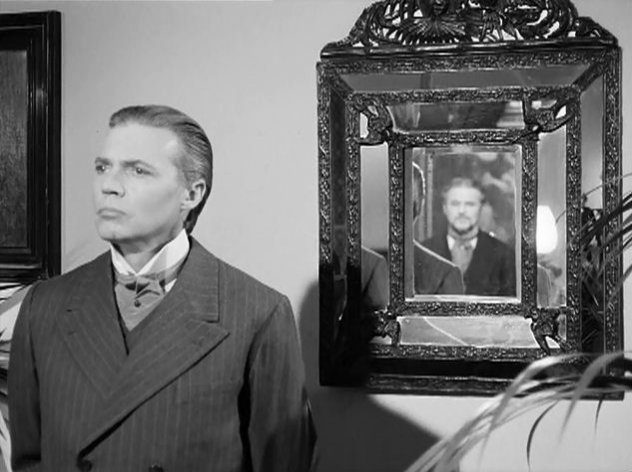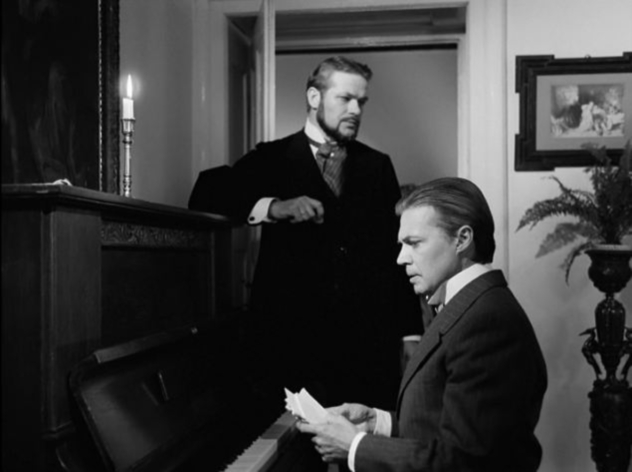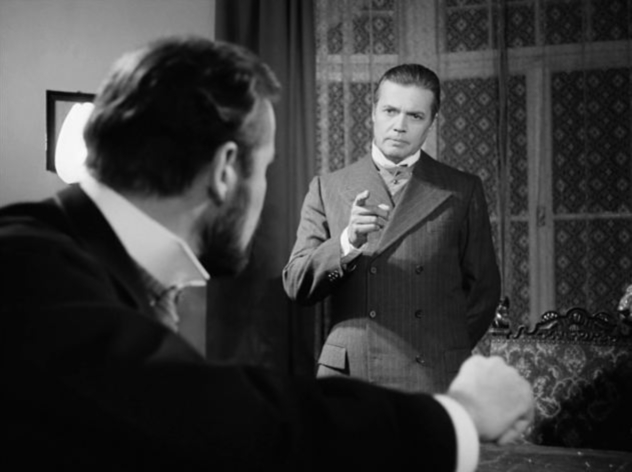It would have been good to see more of Karlheinz Böhm in Effi Briest, but perhaps his looks are less suited to this period drama. It is a small detail, but an important one, and although Karlheinz Böhm excels in Fassbinder’s dramas such as Mother Kusters Trip to Heaven and Martha, at least here he speaks in his own voice. He plays, Wüllersdorf, who is a real friend to Instetten, maybe the only one he has.
Wüllersdorf is a lesser man than Instetten, but more reasonable, and it is thus he is cast, hair slicked and eyebrows sharp with criticism. And in a film of ghosts and stuck up Prussians with sidearms, he looks scary. Karlheinz Böhm as Wüllersdorf acts as Instetten’s second in the duel, although he argues against the practice of duelling at all, to a level of philosophical sophistication that almost becomes a small film in its own.
It’s true that Instetten has been shamefully deceived as he says, but he sees no way though for his pain, and the argument for duelling is ultimately that because as citizens and humans they live as part of the whole, the crime of deceit and infidelity affects them all – or rather, to ignore it would be a worse crime – and this is the pinnacle or reasoning that society has reached. This deathly finality to everything that Wüllersdorf has to bear culminates in Instetten’s explanation that he has lost all control – he has in fact relinquished control of the situation to society.
When it comes, the duel is instant; the camera shows a pistol shot and the distant form of the crumpled Crampas, dead on the beach where his courting of Effi took place; even in this long camera shot, Wolfgang Schenck can be seen to turn away in discus with Wüllersdorf what he has done.



